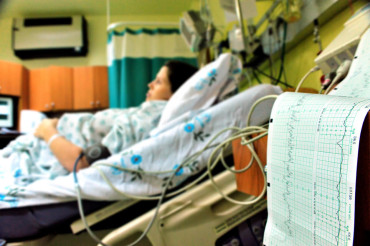Who is Responsible for a Birth Injury Due to Maternal Infections?

There are several forms of complications that may arise during a pregnancy. Some are known as maternal infections. If you are at high risk for a complication, or if at any point symptoms arise, it is imperative that your healthcare provider act immediately to ensure the health of you, and your baby. With the proper diagnoses, care, and treatment, your baby’s risk of birth injury due to maternal infection can be minimized. Unfortunately, there are many instances in which medical professionals misdiagnose or mistreat these infections, and the consequences can be deadly. Reduce your baby’s risk of birth injury due to maternal infection by being aware of the different signs, symptoms, and risk factors to look for.
Maternal infections vary in severity. The more you know about what to look for, the more quickly your healthcare provider will be able to address them should symptoms arise. Below are some of the more common types of maternal infections to be aware of.
- Toxoplasmosis: A parasitic infection spread mainly through cat feces and soil. It can also be spread through undercooked meat and contaminated water. In order to prevent toxoplasmosis, it is important to stay away from cat litter, thoroughly cook all meats, and wash hands thoroughly after cooking and gardening. The majority of those who contract the infection do not display symptoms. This is why it is imperative to contact your healthcare provider immediately if you might have been exposed to the parasite.
- Rubella: A highly contagious viral infection, also known as the German measles. Although Rubella is far less common today, it is important that every woman get tested for immunity as soon as she finds out she is pregnant. Vaccination is still possible once pregnant, and highly recommended as the virus can have devastating consequences for the baby.
- Group B strep: A common bacteria which occurs naturally in up to 45 percent of women. Although harmless to healthy adults, these bacteria can cause serious illnesses in newborns. While there is no way to prevent the bacteria in the mother, there are antibiotics that can be prescribed during pregnancy to prevent it from spreading to the baby.
- Syphilis: A bacterial infection usually spread by sexual contact. Typically, the only visible symptom of syphilis is a painless sore on the genital region which lasts 2-6 weeks. Although the sore goes away, the bacteria can lay dormant for years. For this reason, it is critical that expectant mothers get tested as soon as possible to avoid affecting the pregnancy.
- Hepatitis B: A highly contagious liver disease that can be passed to a baby at birth. Around 1.2 million people in the United states are infected with this disease. It is very important that women are tested for Hepatitis B when they become pregnant so that the proper precautions can be taken to prevent its spread to the baby. Treatment includes a series of vaccinations for your baby soon after birth.
What Are Some of the Risk Factors for Complications During Pregnancy?
Before attempting to conceive, women should be counseled on the various risks associated with pregnancy, especially if they have a higher chance of developing complications. It is your responsibility to educate yourself on the various risk factors your health may pose to your baby. And it is the responsibility of your healthcare provider to provide timely and adequate diagnostics and prenatal care. There are many risk factors that make it more likely for you to develop a maternal infection during pregnancy. Some of these include:
- Diabetes
- Hypertension
- STD’s
- Age
- Height/Weight
- Prior Complications
- Genital Abnormalities
Who is Responsible for a Birth Injury Due to Maternal Infection?
Before a woman considers having a child, it is her responsibility to consult a physician in order to properly assess her individual level of risk. At the point in which she places her care in the hands of a healthcare provider, it is up to them to provide prompt and adequate care to ensure the health of both mother and child. This includes running the appropriate tests necessary to diagnose and treat any pre-existing complications, as well as those that might arise in the future. If the healthcare provider is negligent, and that negligence leads to a baby’s harm, then they may be liable for those damages.
We Can Help
If your doctor failed to diagnose or properly treat your maternal infection, and your or your baby had to suffer the consequences, you may be looking at a case of medical malpractice. At Ross Feller Casey, we have the expert staff to handle your birth injury lawsuit with efficiency, care and compassion. We understand that your baby’s safety is number one, and we ensure your comfort during your difficult time as we recover the finances you need to care for you, or your child.
Ross Feller Casey is widely regarded among the nation’s leading birth injury law firms and has an impressive history of record results in cases involving infection lawsuits. Contact Ross Feller Casey today for a free consultation.
Disclaimer: Ross Feller Casey, LLP provides legal advice only after an attorney-client relationship is formed. Our website is an introduction to the firm and does not create a relationship between our attorneys and clients. An attorney-client relationship is formed only after a written agreement is signed by the client and the firm. Because every case is unique, the description of awards and summary of cases successfully handled are not intended to imply or guarantee that same success in other cases. Ross Feller Casey, LLP represents catastrophically injured persons and their families in injury and wrongful death cases, providing legal representation in Pennsylvania and New Jersey.





